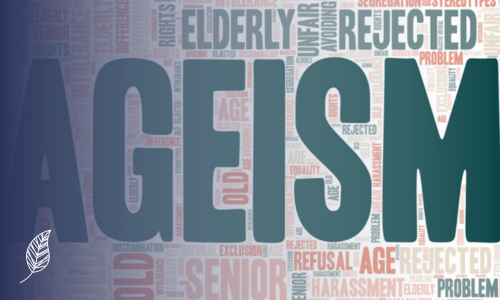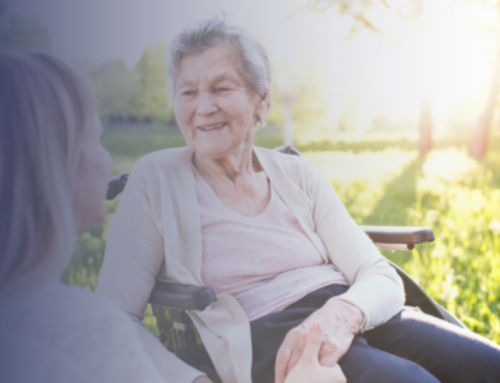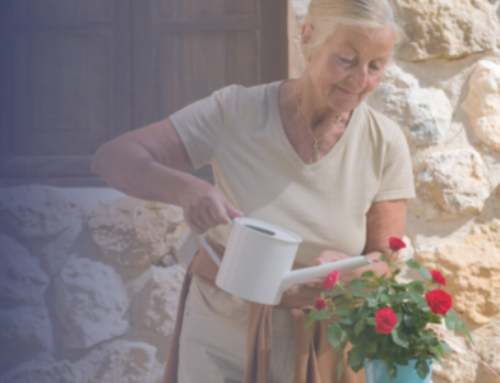Age Discrimination is Harming Our Senior Adult Population

Ageism in western culture has become so commonplace that most people have no idea they regularly insult their elders. With people turning 65 at the rate of 10,000 per day, the effects of negativity towards the aging population are causing greater division in our society.
The World Health Organization analyzed a World Values Survey reporting that individuals in higher income countries, such as the U.S., have a lower opinion of older people. Why do Americans dismiss such a large segment of our population with such derision?
Ignoring the Past in Pursuit of the Future
One possible reason for the negative attitude Americans generally hold towards seniors is our obsession with innovation and progress. We believe that technology belongs to the young, and if you can’t keep up, get out of the way. While rapidly developing technology has certainly led to amazing advancements in just the past generation, it’s important to remember that the computer you’re holding in your hand right now was made possible by the men and women who nurtured this technology in its infancy 50 and 60 years ago. Don’t forget that the folks who populate our senior living complexes along the Main Line are from the generation that first put man on the moon!
Another technology-based reason for our current level of ageism is the constant barrage of information. While awareness of dreadful diseases like Alzheimer’s is wonderful, the amount of media presenting its existence may lead to a subconscious acceptance that everyone over a certain age is suffering from major cognitive impairment. Add to this the running jokes in popular shows about grandparents making driving mistakes, or older people forgetting things, and it’s no wonder that so many people under thirty believe that no one over sixty is of any intellectual value.
These stereotypes are harmful, and they truly rob our society of opportunities to learn from the vast amount of knowledge and wisdom held by our aging population. The fact is that with healthier lifestyles, advancing technology, and the wonders of modern medicine, people live long, cognitively healthy lives and continue contributing to their communities well into advanced age.
How Can I Reduce Ageism in My Interactions with Elderly Adults?
The most important step to reducing ageism in your own thought process is to remember the amount of experience that comes with aging. Are you likely to make the same decisions you made a decade ago? What experience did you gain from making decisions the way you once did? Remember that everyone older than you holds that many more years of informed life experience.
The language we use to interact with older adults is vital to reducing ageism. It’s common to infantilize older people out of concern for their well-being, or even as a way to good-naturedly tease their personalities. Avoid using sing-song tones when speaking to elderly adults. Also avoid language that is typically used with children. For example, grandma is not adorable for getting excited about using Facetime with her grandchildren. Instead, she is inspirational for continuing to master new skills that help her live a fulfilling and interesting life.
Finding Creative Ways to Reduce Ageism
Seniors are not like young children who need limited information and choices to be directed into a managed decision. While they may take more time to fully understand and think about all the available information, they are capable of making informed decisions about their lifestyle and needs. Rather than digesting information and relaying it to them, find creative ways for them to learn on their own. This might involve scanning literature so that they can use the zoom feature to enlarge the print. Or find videos and audio clips that explain concepts. Introduce them to podcasts that cover their interests or current health issues.
When you have concerns about your parents’ health, finances, or other important life issues, tell them the reasons behind your concerns, then ask open-ended questions, and give them ample time to think through their responses. As a caregiver accompanying aging parents to a doctor or financial appointment, avoid speaking for them or about them as though they aren’t in the room.
Above all, consider that all people are valuable and worthy of dignity and respect. We can all learn from each other when we understand that everyone brings something to the table. Also keep in mind that a positive attitude about aging will help you maintain good health as you grow older and may even help you live longer!
Loretta Shacklett, Certified Senior Advisor®, founded Simplify Senior Living with an understanding of the damaging effects of ageism and stereotypes against our aging population. Please watch our informational videos on ageism or follow us on Facebook for tips and ideas to help you support your senior loved ones.
Want to know more about Simplify Senior Living?
Simplify Senior Living LLC is a concierge home help service in Pennsylvania dedicated to providing senior home care that puts quality of life first. An advocate for seniors and a Certified Senior Advisor experienced in family counseling and life coaching, Simplify Senior Living’s Loretta Shacklett provides emotional support and companionship to clients that prioritizes quality of life while supporting families requiring caregiving services. We offer daily, weekly, or monthly care packages, providing Home, Lifestyle, and Companionship services. We serve Montgomery County, the Main Line, Chestnut Hill, and the surrounding areas.





